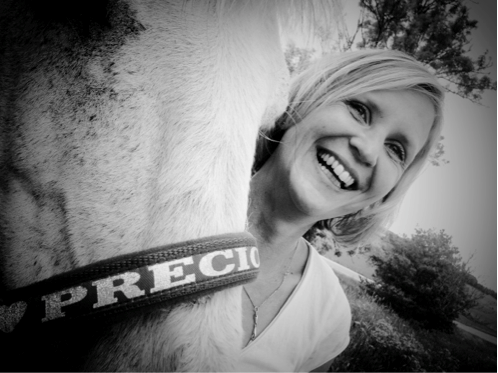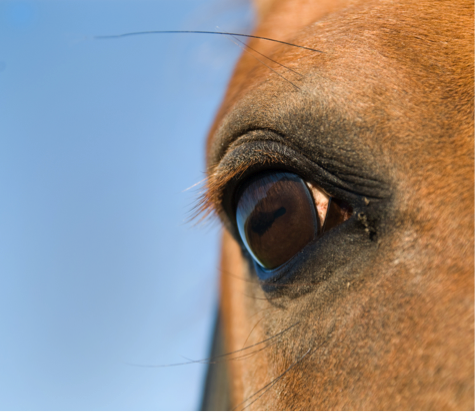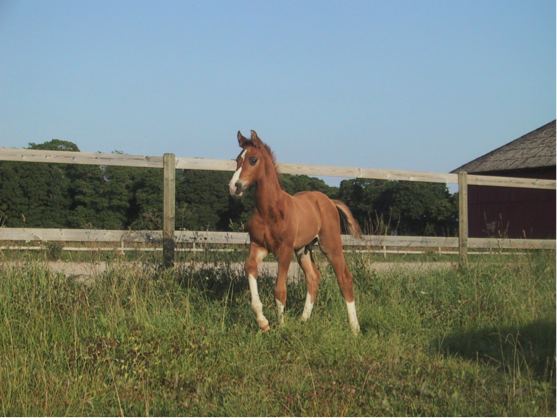Åsa Viklund

Presentation
In my work, I am fortunate to be able to combine my passion for horses and for breeding programs. My research primarily involves the genetic evaluation of sport horses and the genetic evaluation of performance traits, but I am also interested in functional traits such as temperament. I teach on the subject of horse breeding in the equine science and animal science programs.
Teaching
I am examiner and teacher in the Master course “The biology and Use of the Horse” for animal science students. In the Equine Science bachelor program I am examiner and teacher in three courses: “The Biology and Management of the Horse”, “Seminar course in the Biology of the Horse” and “Introduction to Equine Studies”. I also give occasional lectures in other courses. I supervise students in their exam thesis on both Master and Bachelor level.
Research
Nordic Interstallion - Nordic genetic evaluation of horses
A common breeding index
The aim is to develop a common Nordic breeding index, which includes stallions from other countries that are used in the Nordic countries.
The current breeding programs for warmblooded international sport horses are truly international. Sport horses are imported to the Nordic countries annually from Europe, especially from Germany and the Netherlands. Semen is also imported and used to inseminate Nordic Warmblood mares. Often the same sires are used, which means that the Nordic populations are related. If information from the young horse tests and competition from all the Nordic countries can be used in a combined genetic evaluation, we can provide more accurately estimated breeding values for stallions who served in the Nordic countries.
The project is carried out in collaboration with a PhD student (Siri Furre) at the University of Life Sciences in Norway, who studies young horse performance, and myself at the Department of Animal Breeding and Genetics studying competition from the different countries.
The project is funded by the Swedish-Norwegian Foundation for Equine Research.
Genetic background of performance traits in Swedish riding horses
The aim is to find chromosome regions and genes that are associated with performance traits in Swedish Warmblood horses.
Since the horse was domesticated, breeds have been developed for human needs such as hunting, transportation, meat- and milk production, as well as sport and leisure. Molecular genetic methodology can shed light on the genetic background of performance and other traits. The performance traits that are measured in the Swedish Warmblood (SWB) when testing young horses and at competitions are heritable, and a scanning of the genome could reveal association to chromosome regions and genes. We want to follow up on other health, durability and temperament traits that can be collected using questionnaires to the horse owners.
We also want to investigate whether it is possible to perform genomic evaluation in SWB as a complement to traditional estimated breeding values. Genetic selection allows the breeders to choose the most suitable horses for breeding much earlier. That will shorten the generation interval, which in turn will result in faster genetic improvement.
The project is funded by the Swedish-Norwegian Foundation for Equine Research.
Multiple-trait genetic evaluation of Swedish Warmblood riding horses
The aim of the project was to find an optimal way to use all the available information on Swedish riding horses for estimation of breeding values at different ages.
Since 1986, the estimation of breeding values for Swedish riding horses was based on information from a one-day field test for 4-year-olds. Development of the indexes was crucial for providing reliable information and for the credibility of the indices among breeders, trainers and riders. More information was available to be integrated into the BLUP-index system in the form of results from a test of 3-year-olds as well as competition data. In constructing the indices it was important to consistently document the breeding objective, i.e. competition results at advanced levels in dressage and show-jumping respectively. Today, I annually run the genetic evaluation for the Swedish Warmblood Association based on the results from this project.
The project was funded by the Swedish Foundation for Equine Research.
More fertile horses - how is data best utilized in the selection of stallion and mare?
In this project we analyze existing fertility data for Swedish warmblooded and coldblooded trotters and Swedish riding horses.
Every year a certain amount of data on matings and foaling is collected and stored, but so far has hardly been used at all in selection of mares and stallions for breeding. Traditionally, measure of fertility has been based only on the number of mares mated and the number of offspring per year for stallions. This information comes late and does not account for the number of matings or inseminations required per mare during the season. One of our goals is to determine which fertility measures can be used given the quantity and quality of data that is already collected.
We are interested in properties as "non-return rate" (if the mare comes back for a new mating within a certain time), estimated conception rate, foaling percentage, number of inseminations per breeding season for mares, and foal survival.
We want to establish to what extent fertility characteristics are genetically determined and whether it would be possible in the future to select horses based on fertility properties.
We also want to find out how far one can predict a future stallion’s fertility results based on the previous season's results.
The project is supported by, among others, Emma Thoren Hellsten, breeding leader at SWA, and Christina Olsson, head of the breeding department at the Swedish Trotting Association
The project is funded by the Swedish-Norwegian Foundation for Equine Research.
My research collaborators/colleagues
Susanne Eriksson, Department of Animal Breeding and Genetics, SLU.
Siri Furre, Department of Animal and Aquacultural Sciences, Norwegian University of Life Sciences, Norway.
Sofia Mikko, Department of Animal Breeding and Genetics, SLU.
Jan Philipsson, Department of Animal Breeding and Genetics, SLU.
Odd Vangen, Department of Animal and Aquacultural Sciences, Norwegian University of Life Sciences, Norway.
Background
- Master of Science in Agriculture 1999
- PhD in Agriculture 2010
- Employed at the Department of Animal Breeding and Genetics since 1999
Selected publications
Furre, S., Viklund, Å., Heringstad, B., Philipsson, J. & Vangen, O. 2013. Improvement in the national genetic evaluation of warmblood riding horses by including information from related studbooks. Acta Agri Scand A Animal Sci. DOI: 10.1080/09064702.2013.791341.
Thorén Hellsten, E., Viklund, Å., Koenen, E.P.C., Ricard, A., Bruns, E. & Philipsson, J. 2006. Review of genetic parameters estimated at stallion and young horse performance tests and their correlations with later results in dressage and show-jumping competition. Livest. Sci. 103, 1-12.
Viklund, Å., Furre, S., Eriksson, S., Vangen, O. & Philipsson, J. 2014. Genetic conditions of joint Nordic genetic evaluations of lifetime competition performance in Warmblood sport horses. Journal of Animal Breeding and Genetics, accepted.
Viklund, Å., Näsholm, A., Strandberg, E. and Philipsson, J. 2011. Genetic trends for performance of Swedish Warmblood horses. Livest. Sci, 144, 113-122.
Viklund, Å. 2010. Genetic evaluation of Swedish Warmblood horses. Doktorsavhandling, Sveriges lantbruksuniversitet, Uppsala. ISBN 978-91-576-7461-6.
Viklund, Å., Näsholm, A., Strandberg, E. and Philipsson, J. 2010. Effects of long-time series of data on genetic evaluations for performance of Swedish Warmblood horses. Animal 4(11), 1823-1831.
Viklund, Å., Braam, Å., Näsholm, A., Strandberg, E. and Philipsson, J. 2010. Genetic variation in competition traits at different ages and time periods and correlations with traits at field tests of 4-year-old Swedish Warmblood horses. Animal 4(5), 682-691.
Viklund, Å., Thorén Hellsten E., Näsholm, A., Strandberg, E. & Philipsson, J. 2008. Genetic parameters for traits evaluated at field tests of 3-and 4-year-old Swedish Warmblood horses. Animal 2(12), 1832-1841.
Links
Publications list:



